How to make Scotch eggs with Tim Anderson
Expert tips on how to make the third best Scotch eggs in London, that have an ultimate Japanese twist.
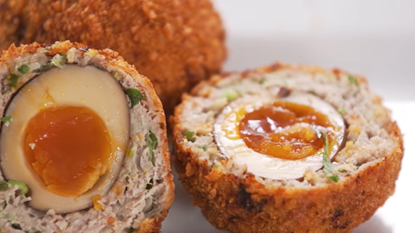

If you're wondering how to make Scotch eggs, you're in luck. We asked Tim Anderson, MasterChef winner and restaurant owner of Nanban, for his award-winning recipe.
In The Scotch Egg Challenge 2018 Tim's Japanese-inspired version won first place thanks to its punchy flavours of spring onion, garlic, and soy. This is one of our favourite Japanese recipes and we are sure will be a family favourite.
These Scotch eggs show the fun and quirky element of Japanese food, which is seen in the izakaya bars and street stalls in Tokoyo. Tim Anderson suggests the key with this recipe is to make sure all the meat covers the egg inside, as otherwise when you deep fat fry them the meat will split and your egg will split open.
If you don't fancy deep fat frying your Scotch eggs, alternatively preheat your oven to 180°C and pop your Scotch eggs on a baking tray with non-stick paper for 20 minutes until golden.
These scotch eggs are delicious and served hot or cold so you can whip them up for lunch and for a picnic feast. This recipe serves four, so just make sure to scale up or down depending on how many you want to feed.
Preparation: For this recipe, we suggest boiling the eggs and leaving them to cool for up 24 hours. By doing this, the eggs will be super gooey inside and the coating of the egg will make the punchy flavours really come through.
Use a deep big pot or a deep fat fryer (if you have one) to deep fry your scotch eggs. It is suggested to use a thermometer, to make sure your oil is at the correct temperature before cooking your scotch eggs as you must make sure you cook the pork all the way through without cooking the egg anymore.
GoodtoKnow Newsletter
Parenting advice, hot topics, best buys and family finance tips delivered straight to your inbox.
It is also essential that your pork mince is not too lean, as you have to cook the scotch eggs for quite a while so if the mince is leaner, it will dry out. Therefore, we suggest opting for a fattier pork mince in this recipe, so that your pork is more moist and flavoursome.
We also recommend looking in your local Japanese shops near to you for ingredients such as menma bamboo shoots and tonkatsu sauce, as these are harder to find in chain supermarkets.
Watch Tim Anderson make these delicious Japanese Scotch eggs
Ingredients:
For the eggs:
- 4 eggs
- 200ml water
- 1 lapsang souchong tea bag
- 1 star anise
- 100ml soy sauce
- 1tbsp mirin
- 1tbsp rice vinegar
For the pork mixture:
- 400g pork mince
- 2 spring onions, finely sliced
- 4 cloves garlic, minced
- 60g menma bamboo shoots, finely chopped
- ¼ Scotch bonnet chilli, deseeded and finely chopped
- ½ tsp salt
- ¼ tsp white pepper
For the coating:
- 2 eggs
- 1 tbsp oil
- 100g strong white bread flour
- 150g panko
- oil, for deep-frying
- tonkatsu sauce, to serve
How to make Scotch eggs
Step 1
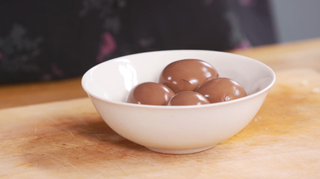
Boil the eggs for six minutes and twenty seconds, then transfer to a bowl of cold water and leave to cool completely. Meanwhile, boil the water with the tea and star anise, then add the soy sauce, mirin, and rice vinegar and leave that to cool as well. Peel the eggs and transfer to the tea mixture. Marinate in the fridge for at least two hours and up to 24 hours.
Step 2
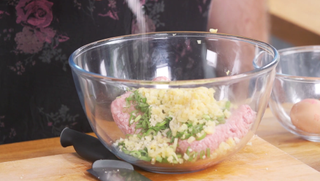
Combine the pork mince, spring onions, garlic, menma, Scotch bonnet, salt, and pepper in a deep bowl and mix until well-combined.
Step 3
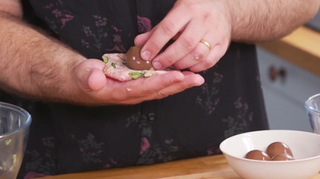
Portion this mixture into 100g balls, then flatten each ball into a large disc.
Step 4
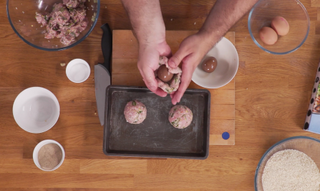
Wrap each disc around a tea-marinated egg.
Step 5
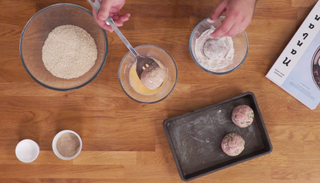
Beat the eggs with the oil, then dredge the pork-wrapped eggs in the flour, then the eggs, and then then panko.
Step 6
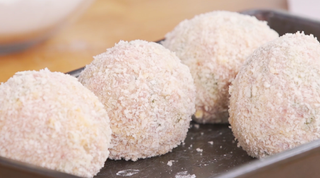
Ensure they are well coated.
Step 7
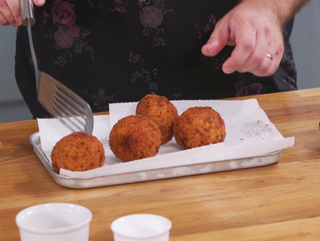
Heat the oil to 160ºC and fry for about 8 minutes, until the pork is cooked through but the egg is still soft.
Step 8
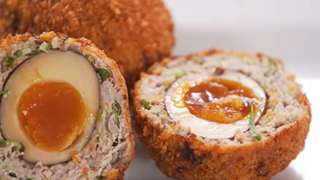
Serve with tonkatsu sauce.
Ultimate Scotch eggs guide
How to store Scotch eggs
After cooking your Scotch eggs and if there is any leftover, simply allow for them to cool to room temperature.
Once cooled, cover them and store them in an airtight container for up to 3 days.
Although Scotch eggs are not the best thing to freeze, it is suggested by Freeze it, that it is possible; "Yes, you can freeze Scotch eggs for up to 3 months. Frozen Scotch eggs will be perfectly safe to eat. But that doesn’t mean you should freeze them as there can be some major textural issues when freezing them."
If you choose to freeze them, make sure you put them in a layer of clingfilm and in an airtight container before storing them. But do note that if you freeze them, you will lose the typical texture of a Scotch egg with its crunchy outside and creamy, runny yolk when reheated.
How to reheat Scotch eggs
The best foolproof way to reheat Scotch eggs is by using the oven. Preheat your oven to 180°C and place your Scotch eggs onto a baking tray.
Heat the Scotch eggs in the oven for around 10-15 minutes, depending on their size. For Tim's ones, we suggest the full 15 minutes, as they are rather big.
To test to check whether your Scotch eggs are hot in the middle, stick a sharp knife into the Scotch egg and carefully feel how hot it is when you pull it out. If the metal is warm, then the Scotch eggs are ready to eat.
Another option is to use an air fryer if you have one. Preheat your air fryer to 180°C and spray your Scotch eggs with a light coating of oil and place them into your basket. Leave a small gap between each Scotch egg and heat them for 4-5 minutes. If not heated fully, then leave them in for a little longer.
We strongly suggest not reheating Scotch eggs in the microwave, as it is generally not safe to reheat whole eggs in the microwave.
How to check the freshness of your eggs
Before making this recipe, we suggest checking that your eggs are fresh and making sure they are suitable to eat.
It is important to know that if your eggs are still fresh, but have past their best before the date they still can be eaten as normal if checked correctly.
The best way to do this is by following the egg float test. Simply, if the egg sinks to the bottom and lays flat on its side - it's still fresh. If the egg sinks to the bottom but stands upright - it's less fresh, but still ok to eat finally if the egg floats to the surface, it is no longer fresh enough to eat and should be binned.
Our best Scotch eggs recipes
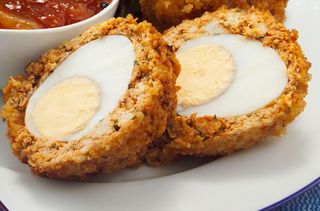
1. Scotch eggs
Try our ultimate recipe for the nation's favourite traditional Scotch egg. The perfect picnic and lunch time snack.
Get the recipe: Scotch eggs
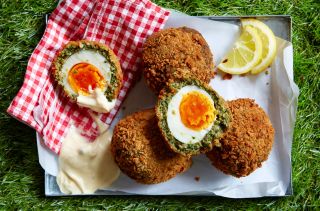
2. Vegetarian Scotch eggs
Filled with red onion vegetarian sausages and rosemary, these are the best meat-free version of a picnic staple.
Get the recipe: Vegetarian Scotch eggs
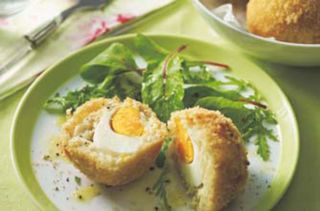
3. Smoked haddock Scotch eggs
This is a delicious Woman's Weekly recipe that is a great fishy alternative to your traditional Scotch eggs.
Get the recipe: Smoked haddock Scotch eggs
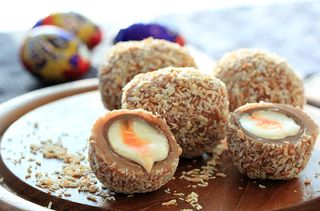
4. Creme Egg Scotch Eggs
A bit like cake pops, these are fun sweet twist of famous Scotch eggs. Filled with delicious madeira cake and creme egg filling, sprinkled with desiccated coconut.
Get the recipe: Creme Egg Scotch Eggs
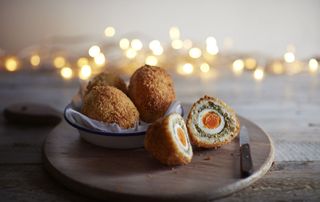
5. Christmas Scotch eggs
These Scotch eggs take your Christmas party food to another level. Filled with sage and onion stuffing instead of sausage meat, they really are a festive crowd pleaser.
Get the recipe: Christmas Scotch eggs
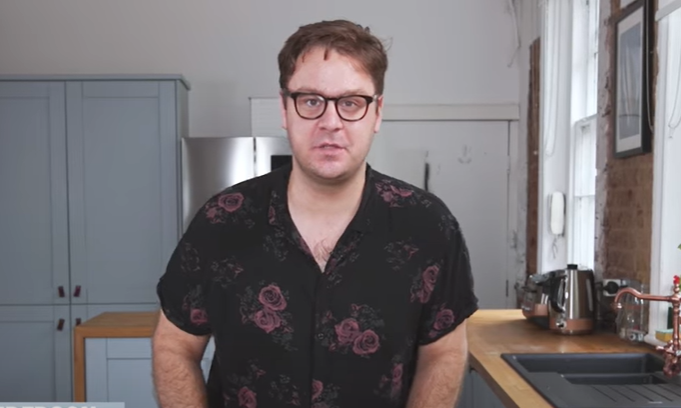
Tim Anderson is an American-British chef, who specialises in Japanese food and gastronomy. Currently executive chef and owner of Nanban, with branches in Brixton and Convent Garden and author of five Japanese cookbooks, his career took off when he won MasterChef in 2011. Since then, he has developed a career as not only a professional chef, but a restaurateur, a writer and radio and TV personality, where he has featured as a panelist on BBC Radio 4 The Kitchen Cabinet, and has contributed to articles in The Guardian, National Geographic Traveller, The Telegraph, Newsweek, and Vittles.
Related features:
How to make Katsu Sando with Tim Anderson
How to make chicken karaage with Tim Anderson
How to make Padron peppers with Joe Howley

Christina Geggus is Junior Food Writer at Goodto.com and enjoys writing about lifestyle, food, and recipes. After completing her Master’s in Magazine Journalism at Nottingham Trent University and her undergraduate degree in Communication & Society and Global Studies alongside receiving an NCTJ diploma, Christina has always set her sights on a career in journalism.
- Rosie ConroyFood Writer